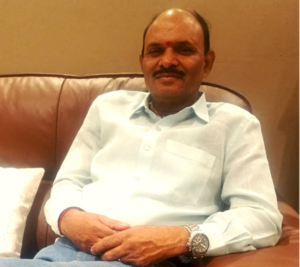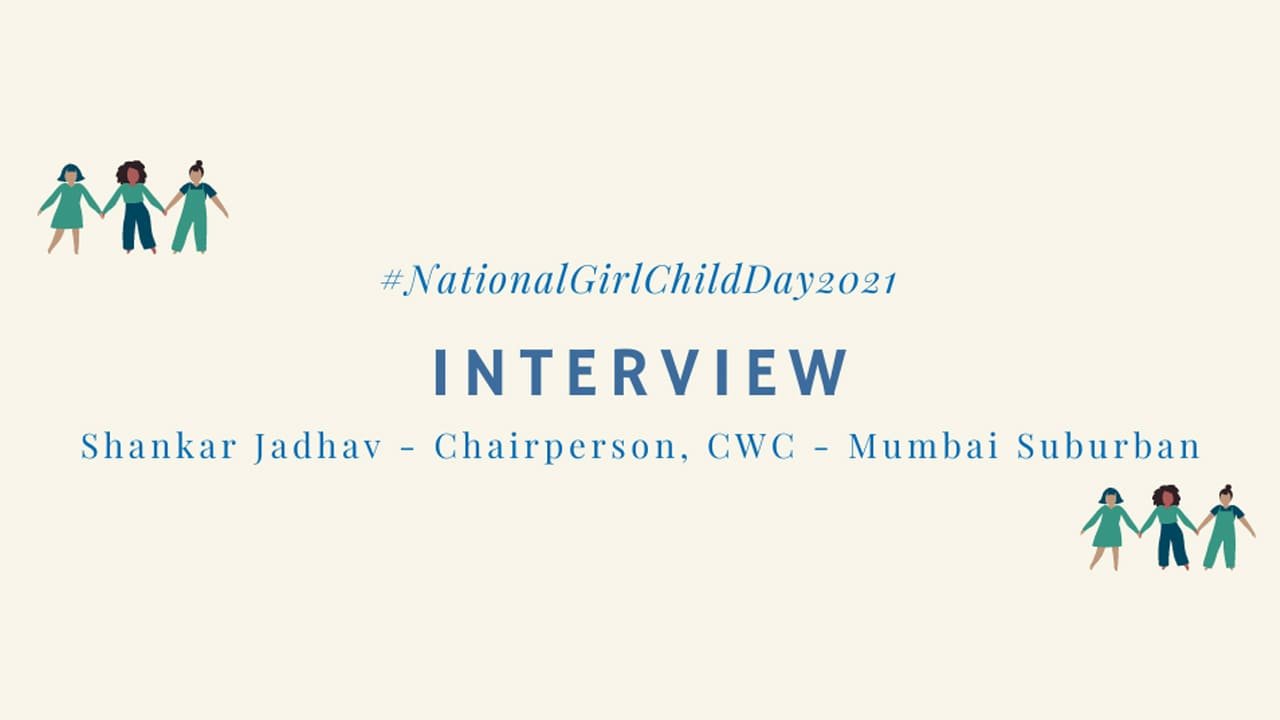Azra Qaisar
DOCUMENTATION AND COMMUNICATIONS MANAGER
This National Girl Child Day, we met with some stakeholders who work with child protection to under their experiences of working with girl children. Mr. Shankar Jadhav, Chairperson of the Child Welfare Committee (Mumbai Suburban) shared his observations from his field experiences.

- How long have you been in the field of child rights?
I have been working in the field of child rights for over thirty years. I have been associated with child care institutions, and currently serve as the Chairperson of the Child Welfare Committee of the Mumbai Surban district.
- Based on your experience of in the field of child rights, what do you think are some issues that affect girls today?
In our work as the Child Welfare Committee, we try to treat everyone equally, regardless of their gender. When it comes to girls, access to education is a major area of concern. When we think of education, it is important that we emphasize the need for quality education for children. I also feel access to nutrition, safe spaces and healthcare are also issues that need greater focus.
- What are the concerns that the Child Welfare Committee has observed while working with girl children?
In terms of violence against girls, we often are presented with cases of child sexual abuse, commercial sexual exploitation, and child labor. In many cases, the family is responsible for the situation that the child is in. We need greater awareness to prevent violence against girls. It has been nearly 12 years since the observance of National Girl Child Day was initiated, yet we have a very long way to go towards equality. I have come across situations where well-educated families also still have a preference towards male children. I am unable to understand why are we still following these ideas in this time and age. Awareness and outreach programs are necessary across social groups to further equality.
- When a case is presented before the CWC, do you seek the girl’s participation in the decisions that will be made in her case?
We get a very heavy volume of cases, and it is not always possible for us to have in-depth interactions with every child. We approach and assign NGOs to follow-up on the child. They interact with the child and share with us what the child’s wishes are. We take them into consideration before making a decision in the child’s best interest.
- In many cases, we have observed that the stakeholders working with children can be insensitive towards the girls. They may also blame the girl for her circumstances. What do you think about this matter?
When it comes to child care institutions, there are situations where few staff members are responsible for a large number of children. In such situations, there are greater chances of insensitive behavior by the CCI staff. When such matters are reported to us, we talk to the concerned stakeholders. We ask the counselor to speak with them as well if needed. We handle such situations on a case-to-case basis but we work to ensure that they do not go unaddressed.
- How do you think we can do better in our efforts to achieve gender equality?
I think reservations help in bringing girls to the classroom. I think education has to be prioritized. We have to collectively work to bring more girls to schools. While doing this, we have to take their social context into consideration. For example, if there is a girl from a slum area attending the school, we must channel our efforts to ensure she stays in school. Reservations could help in this area to help mainstream marginalized children. We are trying to make boys above 12 years of age, also a part of the conversation on gender equality. I think it is necessary for all of us regardless of our work and where we live to be respectful to women and girls around us, and this respect should be accorded regardless of the person’s social background.
- Who are some women that you admire?
I admire the women who work with us to ensure the safety and protection of the children. These are social workers across many organizations. I also find Mother Teresa inspiring, as she helped people without discriminating on the basis of their class, caste, or socio-economic backgrounds. Savitri Bai Phule is also an inspiring figure for me.






